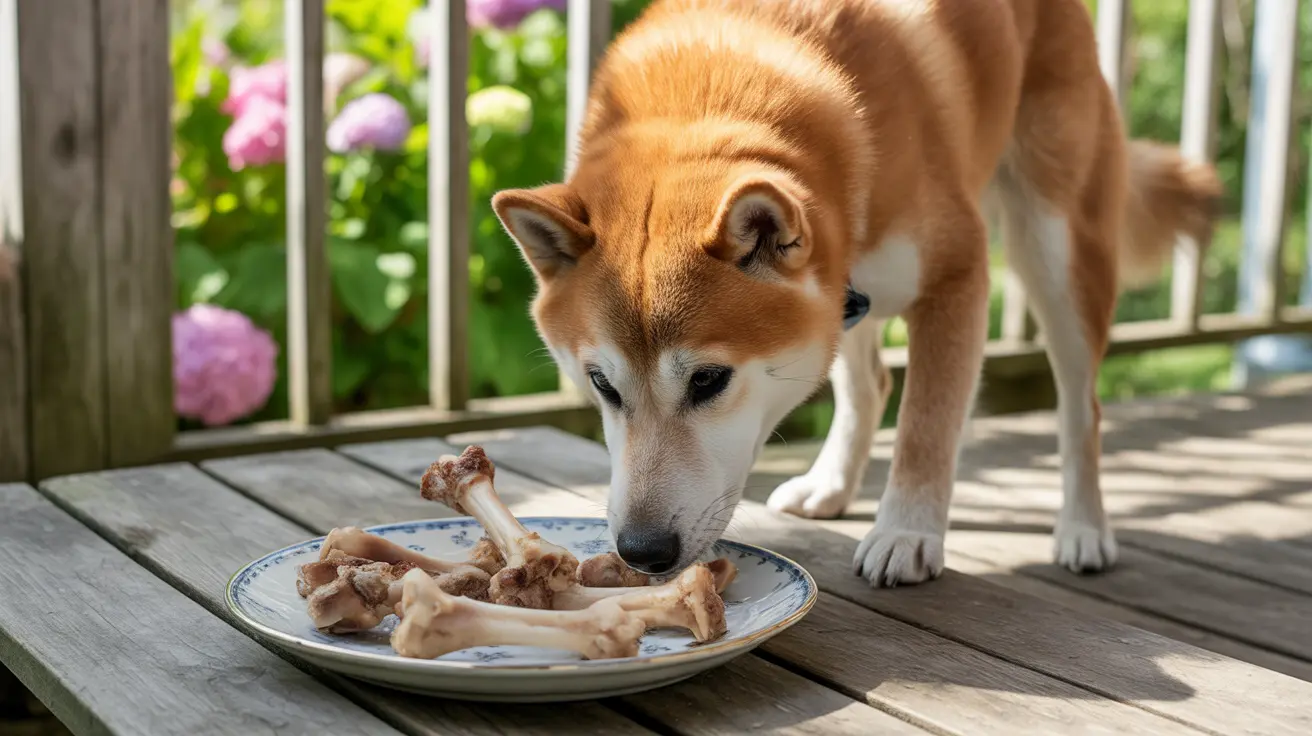Many pet owners have heard warnings about the dangers of giving chicken bones to dogs, but some question whether this is merely an old wives' tale. As veterinary science has advanced, substantial evidence has emerged confirming that chicken bones pose serious risks to our canine companions.
In this comprehensive guide, we'll examine the scientific evidence behind the dangers of chicken bones for dogs, explore what veterinary research tells us, and provide clear guidance for pet owners facing this common concern.
Understanding the Physical Dangers of Chicken Bones
Scientific evidence demonstrates that chicken bones, particularly when cooked, pose significant physical risks to dogs. The cooking process makes these bones brittle and prone to splintering, creating sharp fragments that can cause serious internal injuries.
Clinical studies have shown that approximately 20% of dogs who consume cooked bones require veterinary intervention for complications. These complications often involve trauma to the mouth, throat, or digestive tract.
The Raw vs. Cooked Bone Debate
While some argue that raw chicken bones are safer than cooked ones, veterinary evidence suggests both carry significant risks. Raw bones, though less likely to splinter, present their own set of dangers:
- Bacterial contamination risks, including Salmonella and E. coli
- Potential choking hazards
- Risk of dental damage
- Possible gastrointestinal obstruction
Clinical Evidence of Bone-Related Injuries
Veterinary studies have documented numerous cases of bone-related injuries in dogs. Research shows that esophageal bone foreign bodies (E-bFBs) are particularly concerning, with specific patterns of injury depending on where the bone becomes lodged:
- Proximal esophagus: 22% of cases
- Middle esophagus: 22% of cases
- Distal esophagus: 56% of cases
Prevention and Safe Alternatives
Instead of chicken bones, veterinarians recommend several safer alternatives for dogs who love to chew:
- Specially designed dental chews
- Durable rubber toys
- Commercial dog bones specifically manufactured for canine safety
- Natural alternatives like carrots or appropriate-sized raw vegetables
Frequently Asked Questions
Why are chicken bones bad for dogs, and what are the risks?
Chicken bones are dangerous because they can splinter easily, causing potential injuries to the mouth, throat, and digestive tract. Clinical studies show they can cause choking, internal punctures, and gastrointestinal blockages. The risks are particularly high with cooked bones, which become more brittle and prone to splintering.
Can dogs eat raw chicken bones, or are they just as dangerous as cooked bones?
While raw chicken bones are less likely to splinter than cooked ones, they still pose significant risks. These include bacterial contamination (Salmonella, E. coli), choking hazards, and potential intestinal blockages. Veterinarians recommend avoiding both raw and cooked chicken bones.
What should I do if my dog eats a chicken bone, and when should I seek veterinary help?
If your dog consumes a chicken bone, contact your veterinarian immediately for guidance. Monitor your dog closely for signs of distress, including choking, vomiting, lethargy, or abdominal pain. Immediate veterinary attention is necessary if any concerning symptoms develop.
How can I prevent my dog from getting into chicken bones, and what are safer alternatives for treats?
Secure garbage containers, keep kitchen counters clear, and dispose of bones safely. Choose safer alternatives like commercially produced dog chews, rubber toys designed for dogs, or appropriate raw vegetables. Always supervise your dog during chewing activities.
Are there any specific health symptoms I should watch for if my dog accidentally ingests a chicken bone?
Key symptoms to watch for include: vomiting, gagging, drooling, coughing, lethargy, loss of appetite, constipation, bloody stools, and abdominal pain or swelling. Any of these symptoms warrant immediate veterinary attention.
Conclusion
The evidence against feeding chicken bones to dogs is substantial and scientifically backed. While some may question this conventional wisdom, veterinary research clearly demonstrates the serious risks involved. For the safety of your canine companion, it's best to stick with veterinarian-approved chew toys and treats.






